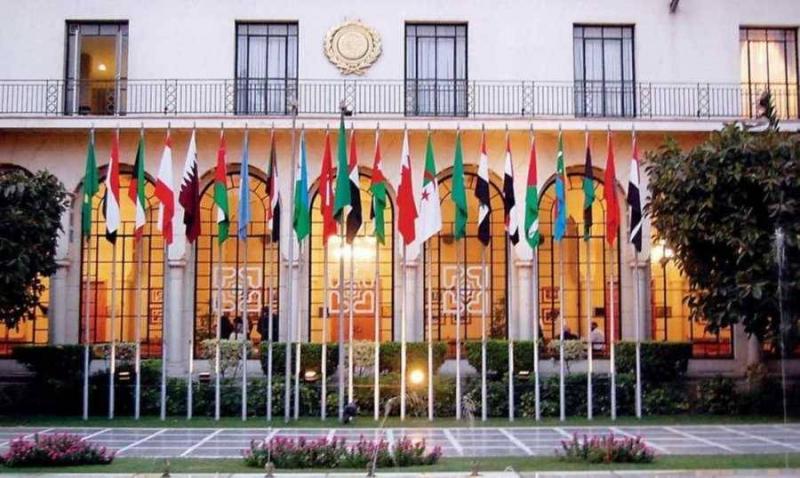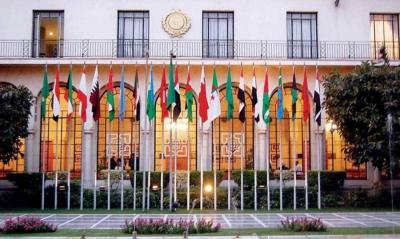The Arab League's observation mission for the Lebanese parliamentary elections distributed a preliminary statement about the elections, stating:
**Introduction:** "In response to the invitation received by the Secretary-General of the Arab League from the Minister of Interior and Municipalities, and in support of Lebanon on various levels, the mission, headed by Ambassador Ahmed Rashid Khatabi, the Assistant Secretary-General, participated in monitoring the elections for the members of the Parliament. In this context, a memorandum of understanding was signed with the Ministry of Interior and Municipalities to determine the rights and obligations of the mission members in carrying out their task, especially regarding monitoring the voting and counting processes, and assessing compliance with national laws and internationally recognized standards of neutrality and integrity, as established in the international election monitoring principles adopted by the Arab League since 2015.
The head of the mission held meetings to closely observe the organizational and security preparations in place, and to hear the views of some stakeholders regarding this electoral process, including:
- Minister of Interior and Municipalities
- Governor of Beirut
- Chairman of the Electoral Supervisory Authority
- President of the Constitutional Council
- Assistant Secretary-General, UN Special Coordinator in Lebanon
- Lebanese Association for Democratic Elections (LADE)
The mission aimed through these meetings to engage with this electoral process's partners. The mission issued 8 statements regarding these meetings.
**Initial Observations:**
**First: Voter Registration**
- The legal framework governing the elections granted all Lebanese citizens aged 21 and over with civil and political rights the right to vote, including those residing abroad.
- Voter lists are considered permanent and are updated annually, and the legal framework provides the right to challenge those lists.
- The Ministry of Interior and Municipalities announced that the total number of registered voters in the parliamentary election database reached 3,970,507 voters, of whom 225,624 were abroad.
**Second: Candidate Registration**
- The registration period was opened in accordance with legal deadlines, with a total of 103 lists of candidates for parliamentary seats, comprising 718 candidates, including 118 women, given that the council includes 128 seats distributed based on sectarian and regional representation according to the constitution.
- The law grants the right to run for elections to any citizen aged 25 and above, indicating an emphasis on increasing youth representation in parliament.
**Third: Campaign Period**
- The mission followed the final stage of the candidates' electoral campaign, noting a decline in the volume of campaign activities compared to the 2018 elections, attributed among other factors to the constraints of the economic, financial, and living conditions.
- The law governing the parliament regulates places designated for electoral advertisements. The mission noted non-compliance by candidates, leading to inappropriate dissemination of campaign posters and advertisements in public spaces.
**Fourth: Voting by Citizens Abroad**
- The mission recorded that the elections for citizens abroad were conducted in two phases and witnessed a relatively high turnout of 63.05% officially across 58 countries.
**Fifth: Ballot Center Staff Voting:**
- The mission noted that designating a full day for polling station staff to enable them to focus on managing the electoral process was an innovative experience that may contribute to the quality of organization.
**Sixth: Election Day**
- The head of the mission and the accompanying delegation conducted field visits to several polling centers in various regions of Beirut and its suburbs. They also visited the operations room at the Ministry of Interior and Municipalities to assess the workflow, particularly on how to handle complaints and resolve issues arising from the districts.
- Mission teams were deployed in several electoral districts across the country, inspecting 11 opening offices and 210 polling stations. They also attended the counting and sorting procedures at ten offices based on the geographical distribution of the team.
1. **Securing Polling Stations:**
- The mission recorded an intensive mobilization of army and police forces in anticipation of any disruption to the normal voting process.
- The mission observed the good security of the voting process through the extensive deployment of security forces at the entrances and around polling stations.
2. **Opening Polling Offices:**
- Most polling offices visited by the mission opened on time at 7:00 AM; however, some experienced delays in opening due to staff not arriving.
- The opening process saw a notable presence of candidate representatives and political forces, in addition to some local and international observers and media at certain offices.
- The mission believes that the opening procedures at the centers visited were conducted in accordance with the measures stipulated in Law No. 44 for electing members of the Parliament.
3. **Voting Materials:**
- The mission noted the availability of electoral materials, including ballots, envelopes, electoral lists, partitions, ink, numbered locks, and necessary boxes to complete the voting process in most centers.
4. **Voting Procedures:**
- The mission observed that the voting process occurred in an acceptable organizational climate, mentioning that some polling station staff need awareness, training, and a thorough understanding of the electoral system's procedures.
5. **Election Campaign Visibility and Attempts to Influence Voters:**
- The mission noted the continuation of election campaigning around several polling stations through the gathering of competing forces, which may have affected voter intentions and their right to free choice.
- The mission emphasized the necessity of activating laws and applying punitive measures against violators to preserve the exercise of the constitutionally and legally guaranteed right to vote. In this context, the mission expressed regret over reports from governmental sources and monitoring bodies regarding incidents of violence and clashes on election day. The Arab League team present in Zahle noted unfortunate confrontations between supporters of competing parties.
6. **Women’s Participation:**
- The mission recorded an increase in the number of female candidates, reaching 118 in 2022 compared to 86 in the 2018 elections.
- The mission observed a notable presence of women as voters in the voting process and within the composition of polling centers.
7. **Participation of the Elderly and Persons with Disabilities:**
- The mission observed the cooperation of polling station employees with the elderly and persons with disabilities, providing necessary assistance in most centers visited by the observers.
8. **Voting Secrecy:**
- The mission observed that most polling stations visited ensured secrecy in voting.
9. **Candidate Representatives:**
- The mission noted a significant presence of representatives at the polling stations visited.
10. **Voters’ Awareness of Voting Procedures:**
- The mission calls for broader awareness programs through media and social networks to simplify the voting process, given their observations of limited awareness among voters regarding voting procedures in specific instances.
11. **Observers’ Access to Polling Stations:**
- The mission recorded the cooperation of security personnel and polling employees with its observers, as the latter faced no difficulties accessing polling stations.
12. **Closing of Polling Stations and Commencement of Counting:**
- The polling offices visited by the mission closed at the legal time of 7:00 PM after ensuring no voters remained outside the polling stations.
- Some offices where the mission was present did not utilize cameras.
- The mission noted that the counting and sorting procedures at the centers visited were complete and correct according to the law, with minutes prepared and displayed outside the offices.
- At times, polling staff were not sufficiently acquainted with the counting and sorting procedures, indicating the need for future training sessions for concerned employees.
**Seventh: Recommendations and Conclusions**
- The mission recorded concerns from various components of the political class regarding the nature of the electoral system in place, which is the open proportional list system (preferential voting) that sometimes creates competition among candidates within the same list, leading to a sense of fragmentation and prioritizing personal interests.
- The mission believes that the current electoral system does not help to ensure adequate female representation in the absence of a women’s quota, which may require legislative authorities to consider democratizing the electoral system.
- The mission noted irregularities concerning exceeding the electoral expenditure ceiling amid calls from political and civil forces to enhance financial monitoring mechanisms and strengthen the powers of the electoral supervisory authority to eliminate vote-buying phenomena and the use of tangible inducements that contradict the integrity and credibility of the electoral process, ensuring voters' right to a free and equitable choice.
- The mission recorded the use of provocative rhetoric and attempts at electoral mobilization by some political factions contrary to the state constitution and electoral law.
- A controversy regarding "electoral silence" was noted in terms of its division, duration, and interpretations, necessitating reconsideration of its provisions to clarify any ambiguities in upcoming electoral processes.
- The Arab League Election Observation Mission confirms that the voting process took place largely within the framework of respecting legal requirements and regulations.
- The mission will release its final report, including detailed observations, final evaluations, and recommendations after the period allocated for challenges and the announcement of final results, which will then be submitted to the Secretary-General of the Arab League for subsequent referral to the relevant authorities in the Lebanese Republic.
- The mission hopes for a new phase in constructive national work where parliament plays a complete and effective role in advancing the path of change and reforms aligned with the legitimate aspirations of the Lebanese people for stability and dignified living.
In closing, the mission expresses its gratitude for the facilitation it received from the Lebanese authorities to carry out its mission under the best circumstances."




